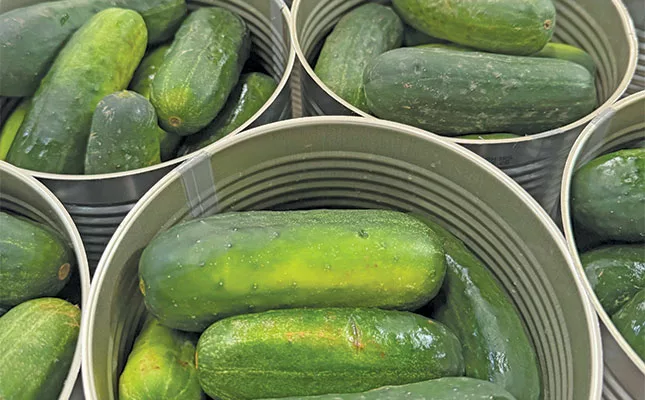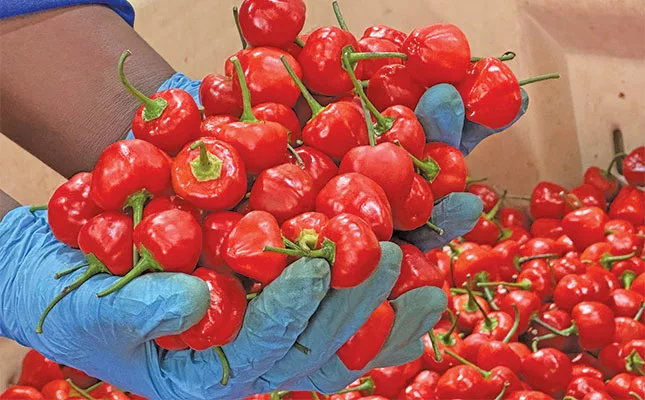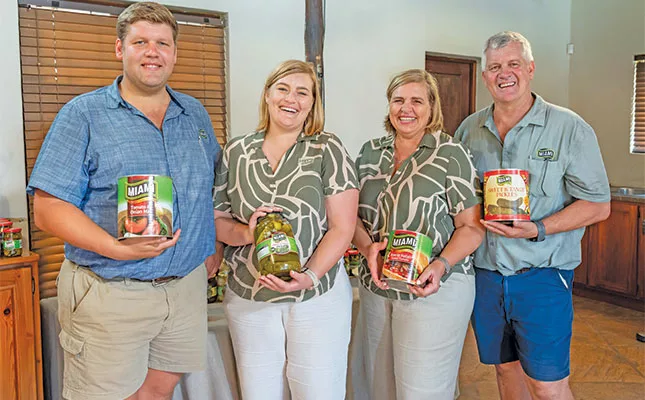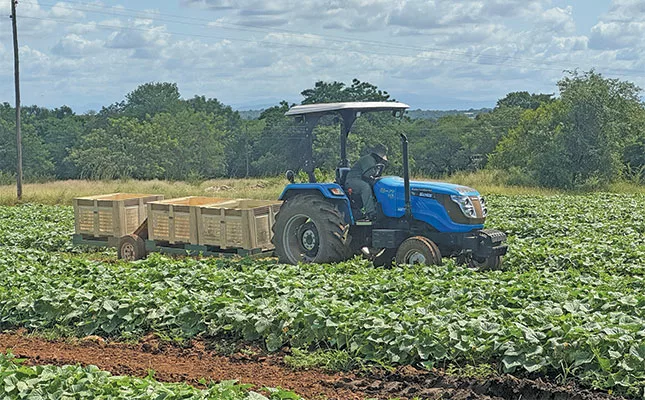
Nothing beats the smell and taste of braaivleis, and most people will agree that one of the perfect dishes to be served at a braai is pap with a flavourful sheba or relish. Miami Canners caters to these, as well as many other preferences and tastes of South Africans.
After more than four decades in business, Miami Canners has established itself as a trusted household brand and can be found on the shelves of most of the large retailers throughout South Africa as well as in neighbouring countries.
History
The farm Miami received its name when foreign officials were commissioned to survey an area adjacent to the Letaba River in the 1900s. Some of these officials were from the US, and when naming farms and areas, chose names that were familiar to them.
In the early 1970s, the late Jan Welthagen established himself on one of the farms, called Miami, and wanting to add value to fruit farming in the area, started making fruit preserves. The family founded the business in 1983, and by 1984, Miami Canners was in full production.
The success of the early products led to the expansion of both the product variety grown on the farm, as well as the building of a new factory in 1990 with modern equipment, up-to-the date technology and research facilities.

The Letsitele Valley’s warm and humid summers and mild winters allow for the production of numerous agricultural products throughout the year, offering the family the opportunity to experiment with different produce. As a result, the range evolved from preserved jams to canned tomatoes, pickles, atchar, and most recently, piquanté peppers, also known as cherry peppers or peppadews.
Miami Canners experimented with glass bottle packaging in the early 1990s and began bottling beetroot, gherkins and pickled onions.
In 1992/93, with ample supply of mangoes in the area, they explored the uses of the fruit in their production lines and decided to make atchar, packed into glass bottles. The range has grown over the years and today they are one of the largest manufacturers of pickled cucumbers, gherkins, onions, and mango atchar in South Africa.
The business
The business today is still owned and managed by the family. Welthagen’s daughter, Yolande, and her husband, Mark Pieterse, are responsible for the overall running of the business, while their daughter, Moné, is responsible for production, and their oldest son, Johann, is the procurement manager. Recently, their youngest son, Welmar, joined the enterprise as a business analyst.
The business is creating much-needed employment in the area, offering more than 1 000 job opportunities during peak production periods. In addition, they also offer wellness sessions and health screenings to the workers. Some of the employees are part of the well-known soccer team in the area called Miami Tigers.

Building a business that competes with multinational businesses on the retail shelves is not an easy task, but being able to secure a meaningful market share within only two generations is no mean accomplishment.
“Miami has established itself in the market by delivering not only a wide range of products catering to household and catering needs, but also by focusing on delivering high-quality products. We pride ourselves on providing the best quality that delivers the tastes South Africans love. As a result, we have created a long-standing and loyal customer base,” says Mark.
Production
The production journey begins on the family’s farm, where they produce mainly gherkins, as well as mangoes and tomatoes, on 550ha.
They use gherkins, tomatoes, onions, peppers, cherry peppers, butternut, eggplant, and mangoes in the production of the various product lines.
Due to the vast amount of produce needed for the product plant, they also contract other farmers to produce for them. Onions and tomatoes, in contrast, are freely available on the local market and easy to procure. Onions also remain fresher for longer and can be bought when the prices are good.
“We do not have enough water or suitable arable land available on our farm to produce everything ourselves, so we have to contract other growers,” Mark explains.
“To have more than one grower for a particular crop is also a good way to spread risk. If something goes wrong in a production cycle, you are able to fall back on other producers in other areas.”
The issue when there is a problem with vegetable or fruit availability, he explains, is that there will be a break in the production schedule and a snowball effect will create additional challenges down the value chain.
“Once we start production on a specific line, consistent supply is of the utmost importance.
“This is the only way to protect your shelf space and market share,” says Mark.
As procurement manager, Johann is responsible for contracting farmers and negotiating prices so that both parties benefit. “We believe in fairness and supporting our partners,” he says.
Although cultivated with care and dedication, the fruit and vegetables destined for Miami’s products undergo rigorous quality checks on field, at arrival and during processing to ensure that only the best make it to the consumer’s table.
“Moné is responsible for production, not only on our farm, but also in supporting our suppliers with information and best practices. We help our partners with decisions around chemical applications and withholding periods, as well as fertigation,” Mark explains.
The fact that they grow produce themselves cuts both ways, he says. “We understand the circumstances and challenges in the field and have empathy with our growers, but at the same time, this also means that people cannot throw dust in our eyes regarding the situation in the field.”
Although gherkin production is relatively easy, it is immensely labour-intensive. They plant in August and harvest in October, and plant again in January and start harvesting from March.
The whole gherkins are harvested and go directly to the production plant where it is sorted, washed, prepared, and packed straight into the jar with steaming hot brine.
“We aim to process within days of picking, as this gives you a crispier eating gherkin and extremely good flavour,” says Mark.

Challenges
There are many variables that have an influence on their business, says Mark. Some of these include:
- Changing market: consumers’ taste and buying patterns change, and producers have to keep abreast of the latest consumer trends.
- Production in the field as well as the processing in the plant: labour disputes can create huge problems, whereas pests and diseases in the field can result in yield reduction.
- Climate and weather: droughts and floods, or extreme cold or heat can result in crop failures.
- Competition: they have to compete with global players in the local market.
Remaining competitive
Mark says competition in the market is fierce, and the only way to maintain or grow market share is by constantly providing good quality and tasty products to the market.
“Our products adhere to strict quality control, in line with international standards. We are FSSC 22000 Version 6-compliant. This certification scheme introduces even more stringent labelling and fraud mitigation requirements. Version 6 brings key updates for food safety, including unannounced random audits, climate change considerations, and new requirements for quality and food waste reduction,” he explains.
One way to ensure quality from the field to the plate is by implementing traceability practices.
“We keep a retention sample on the premises from each batch produced for future reference and to ensure traceability. But we can also trace our products back to the farm.”
Quality must be ensured, as well as product consistency. “We have to prove that the taste and quality of a product will be the same across production batches as well as time periods. If a consumer buys a product today, it must taste the same as the purchase made two months ago.”
Mark adds that their commitment to quality is not just a promise, but a way of life.
“Every can and bottle with the Miami logo tells a story of dedication, sustainability, and the vibrant flavours of the South African soil. For us it is not just about food; it is a celebration of the rich agricultural heritage and tastes of South Africa.”
The facility employs eco-friendly practices, including waste reduction, water conservation, and energy efficiency. By embracing environmentally conscious initiatives like this, they wish to leave a positive footprint on the local ecosystem, ensuring that the breathtaking landscapes of Limpopo continue to flourish for generations to come.
The future and opportunities
The family would like to increase production in certain lines and replace imported products with products grown and produced on home soil, Mark shares.
“We would also like to expand our footprint even more in neighbouring countries, but also branch out to Europe.”
They are always looking for, and exploring, new ideas and tastes that will speak to the South African palate. They perceive the fact that they produce locally from locally sourced produce as a benefit.
“Our belief in South Africa and its people is strong, and we hope to grow this business for generations to come in conjunction with our commercial partners,” Mark concludes.
For more information visit miamicanners.co.za, or email m[email protected].
Get trusted farming news from Farmers Weekly in Google Top Stories.
➕ Add Farmers Weekly to Google ✔ Takes 10 seconds · ✔ Remove anytime






